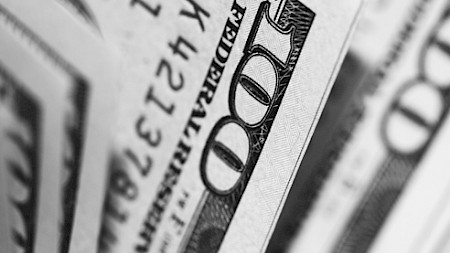06.12.2019, 13:00 Uhr
Chris Mahoney, Portfoliomanager, der Merian Gold & Silver Fund, Merian Global Investors, spricht im Interview über die Attraktivität von Silber und die Rolle von Gold im aktuellen Tiefzinsumfeld.


Richard Buxton from Merian Global Investors expects the Fed to take the slower path to rate increases. The global trade war between USA and China is, according to Ned Naylor-Leyland from Merian Global Investors, also a symptom of the advancing process of "de-dollarisation".
"The wild ride in asset prices at the start of the fourth quarter may have left some investors fearing the worst and wondering about the direction of financial markets", thinks Richard Buxton, Head of UK Equities at Merian Global Investors. Treasury yields surged and stock markets around the globe sold off dramatically. "October was the worst month in six years for global stocks", he says. The impact of central bank unwinding, slowdowns in China and emerging markets along with trade war ructions signalled the end of the long bull run in equities. Especially the US trade wars dominated headlines in 2018. According to Naylor-Leyland, Portfolio Manager at Merian Global Investors, the wars are a symptom of an international monetary system that is in desperate need of reform.
Status quo is being challenged
It was in 1971 when John Connally, then US Secretary to the Treasury, addressed a group of European finance ministers and described the US dollar as "our currency, your problem." Almost 50 years later and only now is the rest of the world starting to question and challenge this status quo. "The fact that China has gone ahead and developed its own regional trade initiatives, and is launching its currency into global markets, seems to lie behind much of the sanctions, tariffs and the hot rhetoric between both countries", assesses Naylor-Leyland.
Pause that refreshes the US economy
Buxton expects the rhetoric of the Fed on the other hand to be altered in 2019, as the impact of higher rates on these industries becomes more pronounced. "The language associated with a move in March is likely to be more dovish. We expect financial markets, which have been sceptical of the Fed's plan for four rate hikes in 2019, will sigh with relief and embrace a moderation in economic growth albeit with some volatility for risk assets", says Buxton. According to him, this should be seen as "the pause that refreshes" the US economy and steers it clear of a recession in 2020 that is forecast by many economists. There is no sign of a Treasury yield-curve inversion that would signal a recession, nor are there big worries in investment-grade or high-yield corporate bond spreads, thinks the Head of UK Equities. "One caveat to this scenario is that inflation is kept in check, which we expect to remain the case", he adds.
Truth of the dollar being a political tool
Raising rates result in a strong US-Dollar. Ever since former US President Richard Nixon defaulted on the US dollar-for-gold arrangement in the 1970s, which led to the demise of the Bretton Woods system and firmly positioned the greenback as the world's international reserve currency, discontent has slowly been gathering momentum. The stronger the dollar, the more vicious turns the discontent. No longer is the "exorbitant privilege" of the US dollar sitting at the heart of the financial system deemed acceptable and economic powers from China to the European Union (EU) are signalling either via their words or their actions that change is afoot. Naylor-Leyland says that US Treasuries buying has dried up and the long unspoken truth of the dollar being a political tool is finally being exposed.
Gold as an alternative to the US-Dollar
"This is where gold once again has the potential to play an important role as apolitical money", Naylor-Leyland adds. In September 2018, Jean-Claude Juncker, the President of the European Commission, pointed out the absurdity of the EU paying for 80% of its energy import bill worth 300bn a year in dollars when only around 2% of its energy imports come from the US. And throughout 2018, the Russians continued to buy gold and sell US Treasuries. Their rapid accumulation of the precious metal since 2014 is supportive of the thesis that Russia has been converting yuan gas receipts into gold on the Shanghai Gold Exchange, in part to shield itself from the effects of the more tempestuous new world order. "If true that the exchange facility is already functioning, this signals a return to an era where gold settled international trade, rather than US dollars or military might", closes Naylor-Leyland.